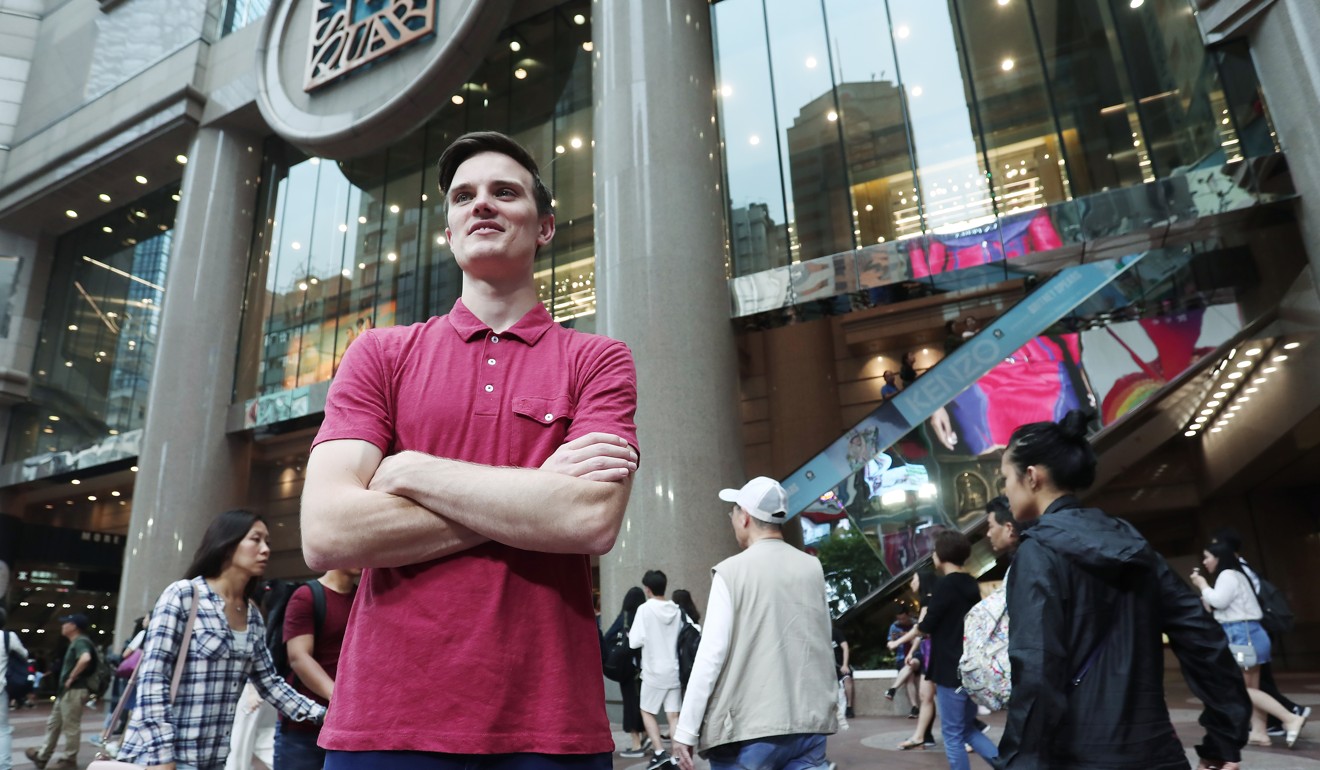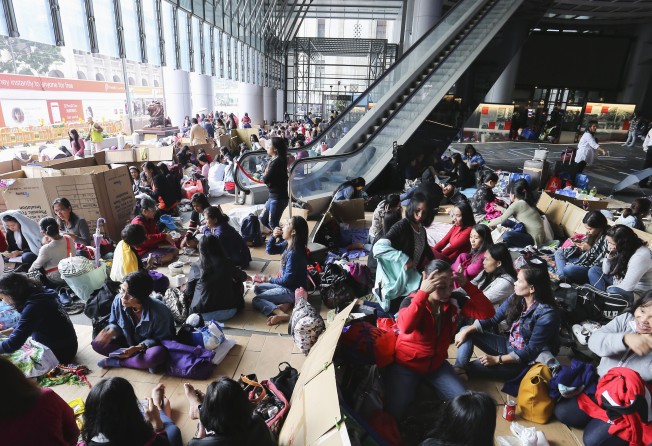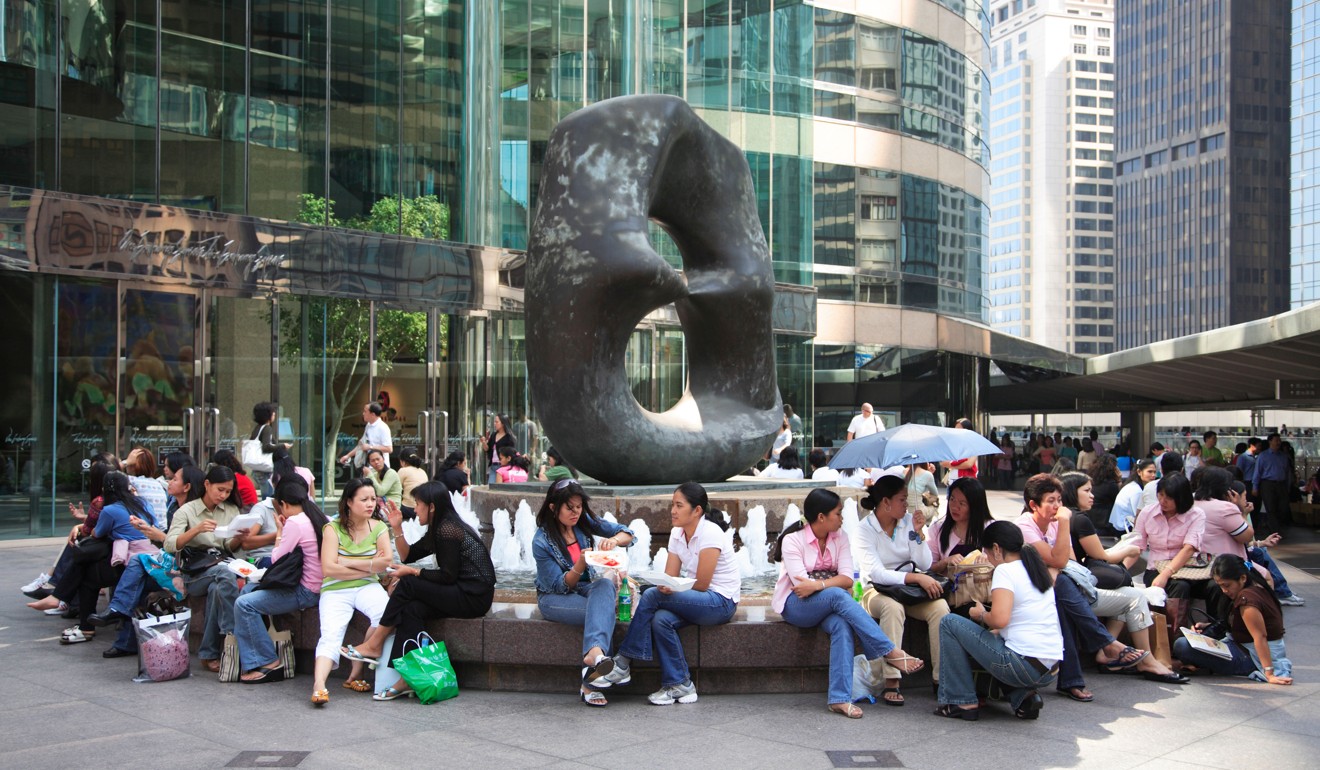
Domestic helper agency in Hong Kong places more than 2,000 Filipino maids without charging them fees
Focusing on upholding ethical practices and empowering workers, group is unique in city where forced labour is technically not a crime

The co-founder of the Fair Employment Agency believes that Hong Kong is on the right track to eradicate the exploitation of domestic workers by 2024, noting his organisation has placed more than 2,000 Filipino helpers at no cost to them.
Studies have shown that indebtedness arising from excessive agency fees is a major reason why the workers remain vulnerable to abuse in a city that has no anti-human trafficking laws and where forced labour is technically not a crime.
More employment agencies operate in Hong Kong – about 1,400 – than McDonald’s and 7/11 stores combined, serving a growing community of some 380,000 foreign domestic workers.
But a few agencies have emerged in recent years focusing on upholding ethical practices and empowering workers.
The Fair Employment Agency officially opened in September 2014 and as of early this year has been able to place more than 2,000 domestic workers in jobs without charging them any fees for its services. Co-founder Scott Stiles, who made the 2018 Forbes list of “30 under 30” social entrepreneurs in Asia, calculated that the agency helped workers avoid an estimated US$3 million in recruitment debt.

“The environment in Hong Kong now compared to 3 ½ years ago when we started is very different,” Stiles said. “People are far more engaged in this, and the Hong Kong government is doing a lot to improve the situation for domestic workers.”
Unethical agencies create problems and harm the economy
Among the positive moves, Stiles noted local officials last year issued a code of conduct for employment agencies, and in March, they launched an anti-human trafficking task force.
“We had said previously that this problem could be eradicated from Hong Kong in 10 years,” he added. “I feel more strongly now than ever that would be this case. I believe they are on track ... They are starting to see that unethical agencies create problems and harm the economy.”
However, several legal experts and domestic workers have said the recent measures fall short of fully tackling the issue, with many calling for anti-human trafficking laws to be put in place.
Shiella Estrade, chairwoman of the Progressive Labour Union of Domestic Workers in Hong Kong, noted many unscrupulous agencies still overcharge workers, and few were actually punished. Workers often face illegal fees both in their home country and destinations, such as Hong Kong, where agencies can only legally charge 10 per cent of a helper’s first month of salary.
Last year, an investigation by a group of students from the University of Hong Kong showed that more than 70 per cent of employment agencies in the city had imposed excessive fees on domestic workers, withheld their passports, or engaged in other illegal practises.
Estrade hoped others would follow the Fair Employment Agency’s model.
“We appreciate the fact that they are not charging fees to workers and we hope that other agencies could adopt this model,” she said. “But I think this should be a service available to all domestic workers, not only to those from the Philippines.”

Asked about opening their service to Indonesians – the second largest source of domestic workers in Hong Kong – Stiles said his agency chose to focus on the Philippines because its government had done “aggressive work” to improve the situation for its nationals.
“We have limited resources, so we engage where we think the most progress can be made,” he explained.
The Fair Employment Foundation, which oversees the Fair Employment Agency in the city, also helped to launch a training centre in Manila. Since its creation in November 2016, the centre has charged a below-market rate as well as trained and sent about 160 workers to Hong Kong.
Stiles is now planning to move to the Philippines, where he will concentrate on building a network of ethical employment agencies across Asia.
“We want to set the standard for what happens around Asia,” he said. “The Philippines has the best laws in place to make that happen. The goal is to provide an end-to-end solution and provide a model for other groups to follow.”